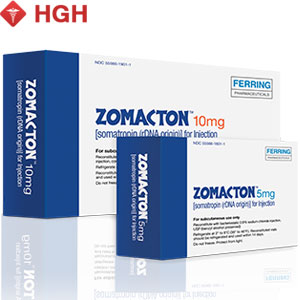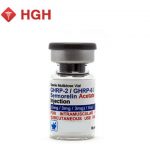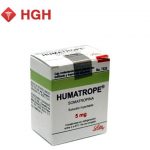 Experts call testosterone ‘hormone that makes a man out of a man’. Testosterone level largely determines the sexual orientation and men behavior. Sculptural modeling muscles on his broad shoulders, more active metabolism than women's, the ability to procreate… This is not a complete list of testosterone functions in the male body. The normal level of testosterone in men is 11-33 nmol per liter (this figure may vary depending on the method used for testing).
Experts call testosterone ‘hormone that makes a man out of a man’. Testosterone level largely determines the sexual orientation and men behavior. Sculptural modeling muscles on his broad shoulders, more active metabolism than women's, the ability to procreate… This is not a complete list of testosterone functions in the male body. The normal level of testosterone in men is 11-33 nmol per liter (this figure may vary depending on the method used for testing).
It is believed that the low level is less than 300 nanograms per deciliter of blood. Reduction of testosterone levels passes gradually and very slowly in men by age. There are not very many people with evident symptoms of low testosterone levels. Many preserved sexual activity, but may manifest frequent fatigue, sleep disturbance. Very often, the muscle tissue begins to be replaced by fat abruptly.
Men with reduced in 10-12% level of testosterone, the male sex hormone, are effeminate, soft and sensitive. Conversely, the men with testosterone levels in blood in 10-12% above normal, show aggressiveness, reduced sense of self-preservation.
The functions of testosterone
1. Increase muscle mass
2. Fat Burning
3. Metabolism activation
4. Bone strengthening
5. Protection against cardiovascular and other diseases
6. Provision of secondary sexual characteristics and erection
7. Control of the sperm generation and its ability to fertilize
8. Maintain an increased interest in the female sex
9. Extension of youth and increase the life duration
10. Charging with cheerfulness and optimism
11. Formation of the male character: offensive, active, enterprising, unfettered, fearless, reckless, prone to adventures and improvisations.
Lack of testosterone in men is often caused by age-related changes, or genetic predisposition. Testosterone deficiency is frequent in older men. After adolescence and up to 30 years the androgen level in blood is the greatest. After 30, the level of testosterone decreases slowly in 1-2% annually, and after 50 finally stops and is considered to be passive.
Besides this, the lack of testosterone in men may be related to:
- hazardous or dangerous habits (smoking, alcohol abuse, drugs that completely destroy the hormonal system; so the children of drug addicts have the same testosterone levels as that of the elderly);
- nervous congestion (at work, which is accompanied by stress, family problems, exhaustion of the nervous system, the lack of male emotions);
- the way of life (long-term abstinence, lack of physical activity or immoderate physical activity, use of substandard female products, obese, office mode of life or living in ecologically unfavorable place).
 The concentration of free testosterone in blood decreases greatly with age. This is due to the deterioration of blood supply to the testicular tissue. Furthermore, this reduction is associated with the increased levels of globulin, binding testosterone.
The concentration of free testosterone in blood decreases greatly with age. This is due to the deterioration of blood supply to the testicular tissue. Furthermore, this reduction is associated with the increased levels of globulin, binding testosterone.
It should be borne in mind that the concentration of active testosterone or freely circulating fraction decrease much faster, and total testosterone may be normal. Because of this all symptoms of testosterone reduction is observed in elderly patients, although they have a relatively normal level of it.
Reduced levels of testosterone or hypogonadism lead to a chain reaction in the body. Testosterone is necessary to maintain normal levels of elasticity in the collagen fibers in the cavernous tissue and for the synthesis of nitric oxide, which is indispensable to the normal full erection.
In addition, testosterone is required for normal passage of numerous processes in the body, so reducing its level leads to the development of certain systemic diseases. Somatic diseases, in turn, can trigger changes in hormonal status. For example, chronic prostatitis caused by violations of lifestyle triggers congestion in the small pelvis and can lead to the development of hyper lactogenic factor and the prevalence of estrogen over androgen.
Externally, the decline in testosterone levels is manifested as a decreased libido, ejaculation and orgasm disorders, erectile dysfunction. In addition, there is a decrease in ejaculate fertility. Not less noticeable are somatic disorders such as osteopenia and osteoporosis, gynecomastia, anemia, obesity, reduced physical strength and muscle mass. There are also psycho-emotional disorders.
Symptoms of low testosterone in men over 30
After overcoming the milestone of 30 years, most men experience a gradual decline in testosterone levels. On average, after 30 a man loses up to 10% in testosterone levels every decade or 1-2% every year. The symptoms of low testosterone in men over 30: sexual activity is on the wane. A recent study also suggests a link between low testosterone in men over 30 and Alzheimer's disease. With a lack of testosterone the blood rushes to brain worse and this causes problems with mental activity. It can affect the body weight, muscle mass, sexual desire, mood and energy.
Symptoms of low testosterone in men over 35
Most modern men feel the symptoms of hormonal imbalance starting from 35 years. Most men fertility declines steadily after the age of 35. Low testosterone level is characterized with a steady decrease in levels of androgens (male sex hormones), accompanied by the deterioration of the quantitative and qualitative sperm indicators, sexual desire and sexual performance (the erection level). External factors also accelerate the decline of testosterone: chronic diseases, excessive alcohol consumption, use of certain drugs.
Symptoms of low testosterone in men over 40
After 40 the androgen level falls to 15% and you are welcome to meet all the possible symptoms of low testosterone in males over 40. Effects of low testosterone in men over 40 are noticed at the volume and strength of muscles, skin turgor. Low testosterone in males over 40: figure loses its former harmony. Fat appeared in the abdomen, thighs and breasts is one of the low testosterone symptoms in men over 40. In turn, the symptoms of low testosterone in men over 40 obesity and endocrine disorders, causes of low testosterone in men over 40, lead to the development of diabetes, atherosclerosis, hypertension, coronary heart disease, heart attacks, strokes, impotence, ultimately impair the quality of life and reduce active men longevity. What causes low testosterone in men over 40? The thought of the impending old age does not add positive emotions and aggravates changes occurring in the body. Low testosterone in men over 40 changes a burly former womanizer into a flaccid, asexual, passive fat.
Symptoms of low testosterone in men over 45
Men passed the age limit of 45 often acquire a certain set of diseases. More than 50% of the carriers of the Y chromosome (men) of this age group have a weakening male power, in medical language - erectile dysfunction as one of the main symptoms of low testosterone in men over 45. Potency is affected by many different factors - nutrition, stress, irregular sexual life or promiscuity, bad habits, and more. Another disease that often occurs in men in this age category is prostatitis - an inflammation of the prostate. The causes of this disease are in the same area as erectile weakness. In addition to sexual ailments, the men aged 45 face the threatening problems with the cardiovascular system - stroke, heart attack, atherosclerosis, and so on.
Symptoms of low testosterone in men over 50
Researchers have found that 10% to 25% of men have symptoms of low testosterone in males over 50. Low libido and erection problems are the two most common low testosterone symptoms in men over 50. Other symptoms of low testosterone in men over 50 are not so bright. For example, fatigue, trouble concentrating, depression, irritability can also be causes of low testosterone in men over 50.
Symptoms of low testosterone in men over 50 may be hidden. Changes in muscle mass, libido, mood swings can be expressed not very brightly, almost imperceptibly for the men, but they are also the effects of low testosterone in men over 50. What causes low testosterone in men over 50? The same as in other age groups but with addition of age that is the greatest factor in testosterone for men over 50. So it is necessary to think about treatment for low testosterone in men over 50.
Symptoms of low testosterone in men over 55
The level of testosterone drops very slowly and to approximately 55 it becomes critically low, which leads to a decrease of excitability and sexual tension. But the ability to get an erection persists for a long time in a healthy man, almost all his life, but over the years it is much weaker. Older men need more time to achieve a full erection and the angle of erection is still lower than in his youth.
Symptoms of low testosterone in men over 60
By the age of 60 the body lacks fifth of testosterone. The clinical picture of low testosterone in men over 60 is manifested in the so-called "male menopause." The main symptoms of low testosterone in men over 60: impaired performance and immunity, attacks of depression and irritability, decreased muscle mass, decreased potency, brittle bones. Age ailments can also be the effects of low testosterone in men over 60.
The symptoms of low testosterone levels are not life-threatening, but they can greatly complicate your life. To learn more and get professional doctor's advice on your condition fill in the form on our site.




